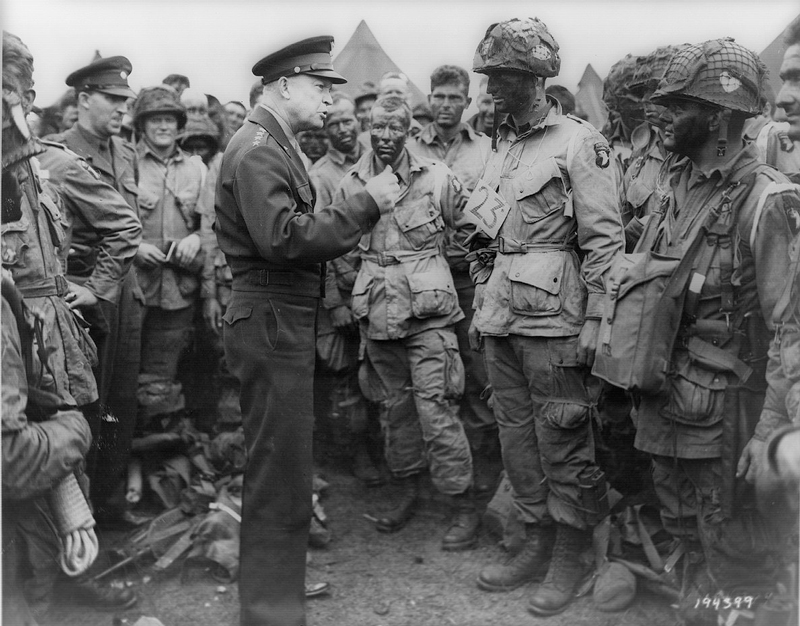 June 6, 2019 will mark 75 years since the largest naval, air, and land operation in history took place. D-Day is often referred to as the turning point of World War II. Although many lives were lost, many more lives were saved. We take this day to remember those who are no longer with us and thank those who still are.
June 6, 2019 will mark 75 years since the largest naval, air, and land operation in history took place. D-Day is often referred to as the turning point of World War II. Although many lives were lost, many more lives were saved. We take this day to remember those who are no longer with us and thank those who still are.
History of D-Day: The invasion of Normandy
The Battle of Normandy, commonly referred to as D-Day, began on June 6, 1944, when the Allied forces of Britain, America, Canada, and France launched a combined naval, air, and land strike against Adolf Hitler and his German forces.
Leading up to the battle
German forces invaded northwestern France to try to control all of Europe. The United States entered the war in December 1941. The British and Americans soon started to consider a major Allied invasion, and the plans were set into motion. The Allies included Britain, America, Canada, and France. According to U-S-history.com, Operation Overlord was the code name for the invasion.
Leading up to D-Day, the Allies increased the number of airstrikes in German territory. Over 1,000 bombers a day were striking German targets. This was a long diversion to slow down the German army for Operation Overlord to come into play. The Germans knew the Allies were coming to invade, but they didn’t know when or where. The Allies led them to believe they would strike north Normandy at Pas-de-Calais.
There were over 2 million troops from 12 countries in Britain preparing for the invasion by 1944. The Allied forces mainly consisted of American, Britain, and Canadian troops, but they also included Australian, Belgian, Czech, Dutch, French, Greek, New Zealand, Norwegian, Rhodesian, and Polish naval, air or ground support, according to iwm.org.
D-Day: June 6, 1944

General Dwight Eisenhower
General Dwight Eisenhower was the commander for Operation Overlord. He planned for the invasion to be June 5, 1944, but bad weather caused the attack to be delayed 24 hours.
After midnight on June 6, 1944, the first stage of the invasion began with 18,000 paratroopers jumping out of planes and landing behind enemy lines to secure bridges and destroy key targets.
More than 160,000 American, British, and Canadian forces landed along five beaches within 50-miles of the Nazi-occupied French coastline. This was the start of the turning point in World War II. According to history.com, the invasion was one of the largest amphibious military assaults in history.
The Allies fought their way inland, allowing for more troops to arrive. Over half a million Allies fought to push the Germans out of France. By the end of August 1944, Paris was liberated, and the Nazis were removed from northwestern France.
Sadly, more than 4,000 Allied troops lost their lives during the D-Day invasion and thousands more were wounded or missing, according to history.com.
Victory
D-Day prevented Hitler from sending troops from France to build up his Eastern front against the Soviets. A year after D-Day, the Allies accepted the complete surrender of Nazi Germany.
This year will mark the 75thanniversary of the invasion of Normandy or D-Day. Many places will hold commemorative events both in the U.S. and Europe to recognize this day in history.
Is your unit doing anything to remember this historic day? Let us know in the comments!
Sources for this article include:
www.ALAforVeterans.wordpress.com/2018/06/06/a-look-back-at-d-day
www.history.com/topics/world-war-ii/d-day
www.iwm.org.uk/history/the-10-things-you-need-to-know-about-d-day
www.ducksters.com/history/world_war_ii/d-day_invasion_of_normandy.php
In the spirit of Service, Not Self, the mission of the American Legion Auxiliary is to support The American Legion and to honor the sacrifice of those who serve by enhancing the lives of our veterans, military, and their families, both at home and abroad. For God and Country, we advocate for veterans, educate our citizens, mentor youth, and promote patriotism, good citizenship, peace and security.